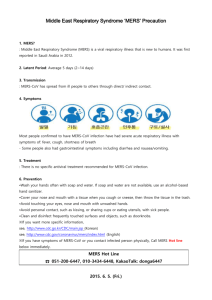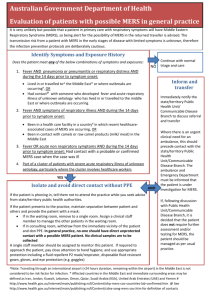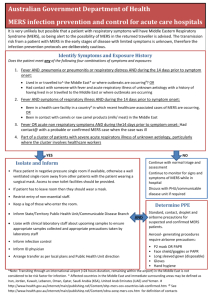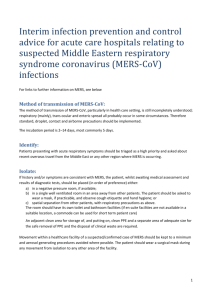Nevada Court Confirms MERS' Authority to Substitute Trustee, But
advertisement
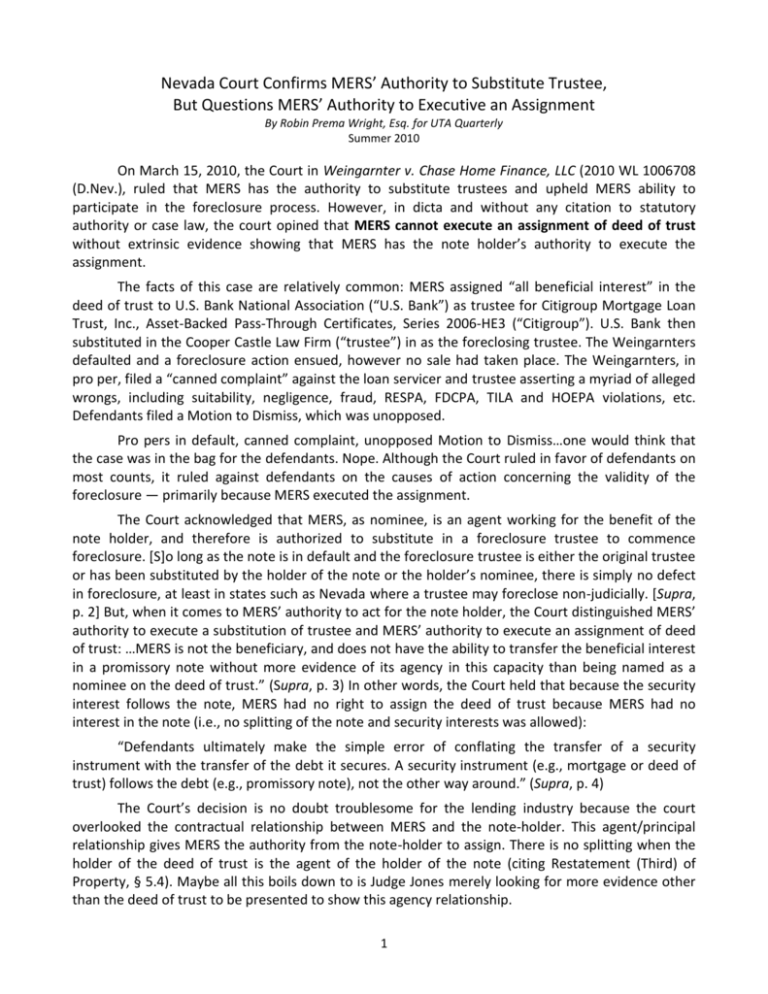
Nevada Court Confirms MERS’ Authority to Substitute Trustee, But Questions MERS’ Authority to Executive an Assignment By Robin Prema Wright, Esq. for UTA Quarterly Summer 2010 On March 15, 2010, the Court in Weingarnter v. Chase Home Finance, LLC (2010 WL 1006708 (D.Nev.), ruled that MERS has the authority to substitute trustees and upheld MERS ability to participate in the foreclosure process. However, in dicta and without any citation to statutory authority or case law, the court opined that MERS cannot execute an assignment of deed of trust without extrinsic evidence showing that MERS has the note holder’s authority to execute the assignment. The facts of this case are relatively common: MERS assigned “all beneficial interest” in the deed of trust to U.S. Bank National Association (“U.S. Bank”) as trustee for Citigroup Mortgage Loan Trust, Inc., Asset-Backed Pass-Through Certificates, Series 2006-HE3 (“Citigroup”). U.S. Bank then substituted in the Cooper Castle Law Firm (“trustee”) in as the foreclosing trustee. The Weingarnters defaulted and a foreclosure action ensued, however no sale had taken place. The Weingarnters, in pro per, filed a “canned complaint” against the loan servicer and trustee asserting a myriad of alleged wrongs, including suitability, negligence, fraud, RESPA, FDCPA, TILA and HOEPA violations, etc. Defendants filed a Motion to Dismiss, which was unopposed. Pro pers in default, canned complaint, unopposed Motion to Dismiss…one would think that the case was in the bag for the defendants. Nope. Although the Court ruled in favor of defendants on most counts, it ruled against defendants on the causes of action concerning the validity of the foreclosure — primarily because MERS executed the assignment. The Court acknowledged that MERS, as nominee, is an agent working for the benefit of the note holder, and therefore is authorized to substitute in a foreclosure trustee to commence foreclosure. [S]o long as the note is in default and the foreclosure trustee is either the original trustee or has been substituted by the holder of the note or the holder’s nominee, there is simply no defect in foreclosure, at least in states such as Nevada where a trustee may foreclose non-judicially. [Supra, p. 2] But, when it comes to MERS’ authority to act for the note holder, the Court distinguished MERS’ authority to execute a substitution of trustee and MERS’ authority to execute an assignment of deed of trust: …MERS is not the beneficiary, and does not have the ability to transfer the beneficial interest in a promissory note without more evidence of its agency in this capacity than being named as a nominee on the deed of trust.” (Supra, p. 3) In other words, the Court held that because the security interest follows the note, MERS had no right to assign the deed of trust because MERS had no interest in the note (i.e., no splitting of the note and security interests was allowed): “Defendants ultimately make the simple error of conflating the transfer of a security instrument with the transfer of the debt it secures. A security instrument (e.g., mortgage or deed of trust) follows the debt (e.g., promissory note), not the other way around.” (Supra, p. 4) The Court’s decision is no doubt troublesome for the lending industry because the court overlooked the contractual relationship between MERS and the note-holder. This agent/principal relationship gives MERS the authority from the note-holder to assign. There is no splitting when the holder of the deed of trust is the agent of the holder of the note (citing Restatement (Third) of Property, § 5.4). Maybe all this boils down to is Judge Jones merely looking for more evidence other than the deed of trust to be presented to show this agency relationship. 1 One of the main reasons for MERS’ formation was to eliminate the need for unnecessary assignments when servicing rights were sold between entities. Prior to MERS, lenders many times ran around trying to obtain assignments from prior servicers who may have been out of business. When MERS holds the mortgage lien for the note-holder, it works as follows: At loan origination, the lender takes possession of the note, and the borrower and the lender designate MERS to serve as the beneficiary whereby the lender’s deed of trust is held by MERS. The originating lender registers the mortgage loan on the MERS® System, and MERS tracks the note owners and loan servicers for each loan. When a note or servicing rights are sold, no assignment is needed as long as the sale of the note involves a MERS member. The buyers and sellers simply update the MERS® System. If however, the loan is sold to a non-MERS member, or, if the note holder wants someone other than MERS to foreclose, the note holder can direct MERS to execute an assignment. MERS does not act in a vacuum as it concerns the lender’s security or loan. MERS acts as the agent for the lender, and acts at the lender’s direction. This agency agreement is memorialized in the deed of trust, and recorded for the world to see. The deed of trust specifically states that MERS is authorized…” to exercise any or all of those interests…” granted by the borrower in the security instrument. The borrower grants to MERS and the lender and the lender’s successors and assigns the right to have security to insure repayment of the loan. The borrower also grants to the lender the right to sell the loan. Therefore, logically, the deed of trust provides that MERS, as agent for the note holder, has the authority to hold title to the security and to assign the security at the direction of the note holder. Nonetheless, the Court rejected the position that the recorded deed of trust provides that MERS can execute an assignment of the deed of trust. The Court stated: “Defendants seem content to let their argument rest dispositively on their position that MERS, by the mere language in the deed of trust, has the authority to transfer the beneficial interest in the underlying debt. This is rejected. Such a result would allow the beneficial interest in a promissory note to become detached from the note itself, potentially producing two rival claimants to the same underlying debt wherever a lender assigns MERS as a “nominee beneficiary” on a deed of trust, and the lender and MERS each subsequently transfer the beneficiary interest to different parties the lender via negotiation of the note, and MERS via purported assignment of the beneficial interest under the deed of trust.” (Supra, p. 4) This conclusion again ignores the fact that MERS is acting at the direction of the note owner and that there is an agency relationship. In essence, the Court’s opinion is akin to a “produce the note” theory, which has no basis in Nevada law. The court ignores the fact that the MERS assignment is transferring only legal title to the Deed of Trust. Promissory notes move through endorsement and delivery- not by the form of assignment that MERS executed. Due to the question of whether MERS had the authority from the note-holder to execute the assignment, the Court concluded that the trustee may have wrongfully foreclosed (however, the Court conceded that if the actual beneficiary stepped forward and acknowledged that it approved the assignment, the trustee would be in the clear). A Motion for Reconsideration was filed. As of the date of this article a decision on that Motion has not been rendered. Robin Prema Wright is a partner with Wright Finlay & Zak, LLP. She specializes in litigation and representation involving mortgage banking, loan servicing, foreclosure trustee defense, general business and real estate issues, as well as bankruptcy and eviction matters as well as nationwide and regional litigation management. She can be reached via rwright@wrightlegal.net. 2
